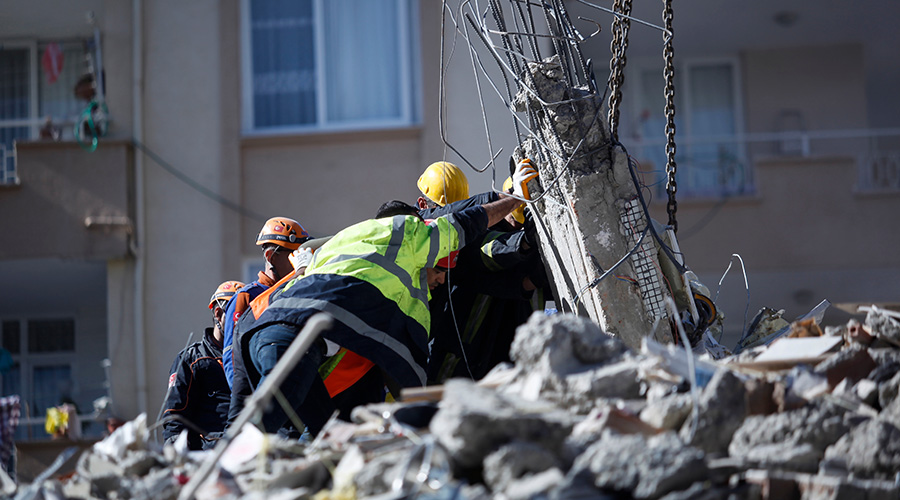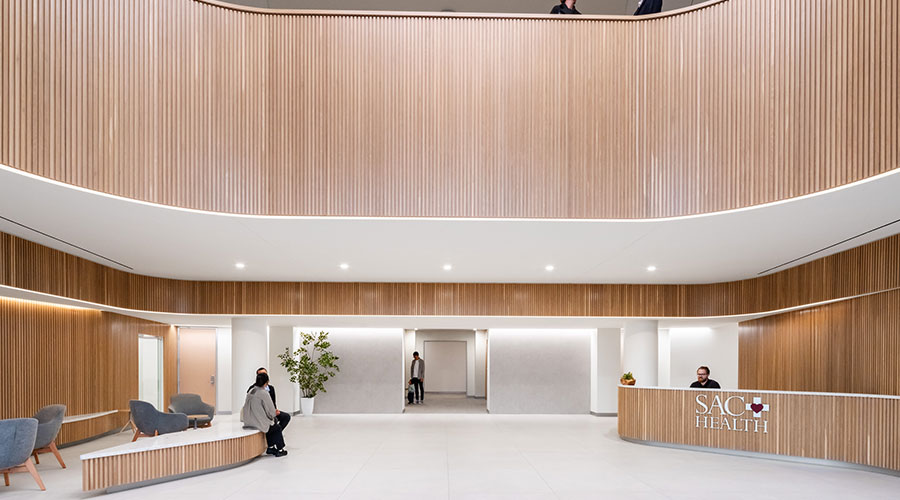Funding and Contractor Instability Pose Construction Challenges
Sometimes, however, the decision to delay the construction timeline is made for owners against their will. The University of California, Merced, had just broken ground for its new 100,000-square-foot Social Sciences and Management building in July 2008. But soon after, the economy crashed. The foundation and superstructure for the building were under construction when, in December 2008, the state of California — practically ground zero for recession-related budget crises — informed the school that it would be temporarily suspending funding.
"We really needed to keep the building moving, but we weren't sure how long the delay in funding would be," says Tom Lollini, campus architect and assistant vice chancellor for physical planning, design and construction at UC-Merced.
UC-Merced is a relatively new university — it's currently in its sixth academic year and the Social Sciences and Management building will be its fourth academic building. "We don't have donors or large sources of revenue stream," says Lollini. "We don't have deep reserves." So the delay, which lasted nine months, could very well have been fatal to the building.
But Lollini and his team circled the wagons and came up with a plan. "During the delay, we continued building the concrete frame and prepared the site to receive everything else," he says. "We'd already bid the contracts, but we hadn't awarded them yet because of the funding uncertainty." So Lollini and his team re-bid all the contracts and were delighted when they came in lower than their original estimates, as the lower bids allowed them to build a bit more than originally planned.
"Because the market had softened, it allowed us to add some scope to the building," he says. "We were actually able to buy more scope in places with the labor savings, so we added some lab fit out work that had been contingency in the original design."
Lollini purchased surety bonds on his contracts, as well. Surety bonds are a form of insurance that protects the owner from financial loss if a contractor fails to perform the contracted work during the project. Lollini says the expensive insurance paid off as one of his trade contractors went under during the project. Without the surety bond, there would have been little recourse. The project has gone according to plan, since construction re-commenced early in 2010, says Lollini, and the project is on schedule to be finished in time to open this summer for the 2011-2012 school year.
Labor Uncertainty?
Though a surety bond won't be a strategy every owner uses because of its relative expense, it does highlight the important issue: The potential uncertainty of contract work during a recession.
"During a severe financial crisis, the contracting community is destabilized," says Lollini. "Remember, your job may be going fine, but a significant problem on another project could cause them to go down." He says his team got bids 30 to 40 percent below estimates, so they really sat down with the contractors to try to make sure they could sustain themselves through the duration of the project.
Similarly, at Marquette University, Ganey says he and his team were very careful to review contractors' financial situations and to pre-qualify contractors before awarding work. In addition to the Discovery Learning Complex, Marquette constructed another building — the 200,000-square foot Eckstein Hall, which opened in September 2010 — in the teeth of the recession. While funding wasn't an issue on that building, Ganey says one of the challenges was that his architecture firm had to downsize in the middle of the project. Therefore, it was important to ensure that his contacts were keeping good records and notes so that new people could pick up the torch on the project.
Fortunately, the downsizing turned out not to be a huge deal, Ganey says, adding that a side benefit in terms of working with contractors during a recession is that, because they may be hurting for work, your project will often get the company's most skilled trades people.
Indeed, as these construction projects that were built despite recession-related hurdles show, there's almost always a silver lining. When project teams are able to turn obstacles into opportunities to think differently, the results are often surprising. As Ganey says, challenging times force you to think more carefully and creatively about what is possible, not about what is not possible. No one would ever hope for a budget cut or a delay in funding or any other calamity, but there's no substitute for the lessons learned in those trials by fire.
Related Topics:











